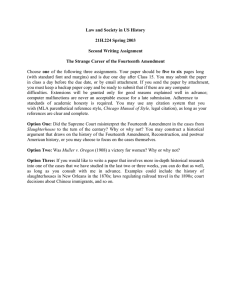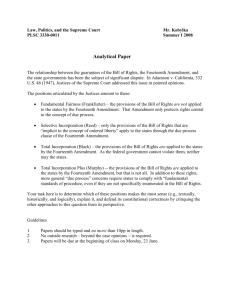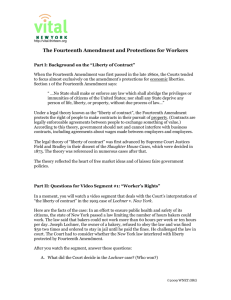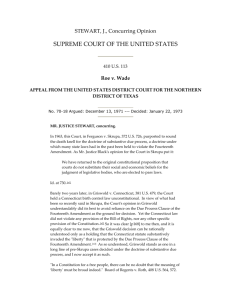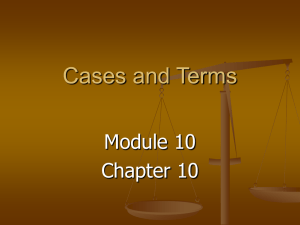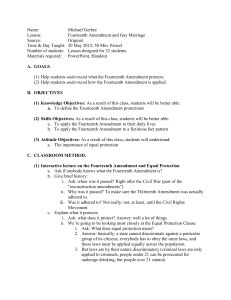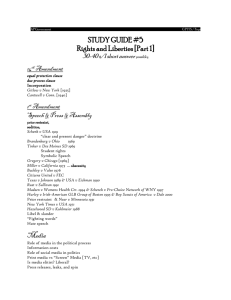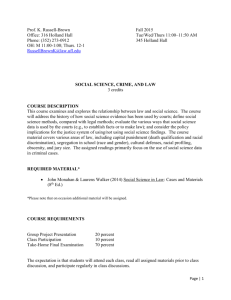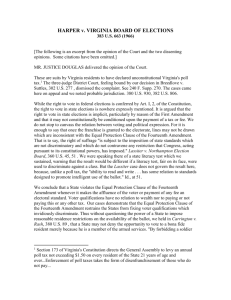Sawyer Singleton per. 4 Lochner v. New York Chief Justice: Melville
advertisement
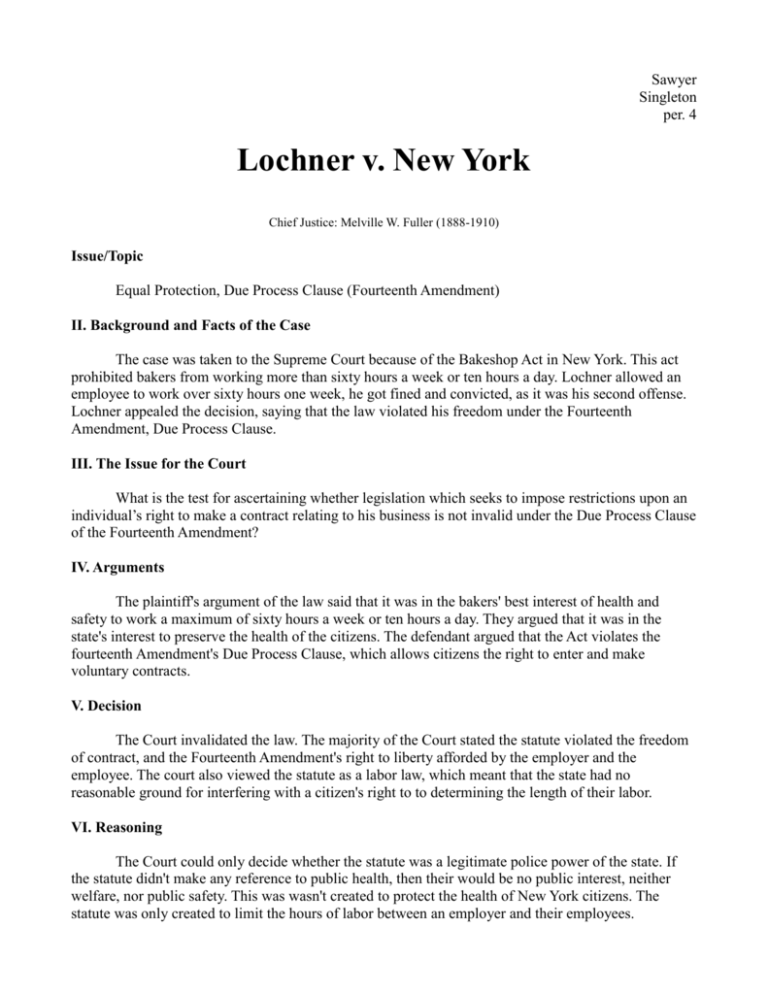
Sawyer Singleton per. 4 Lochner v. New York Chief Justice: Melville W. Fuller (1888-1910) Issue/Topic Equal Protection, Due Process Clause (Fourteenth Amendment) II. Background and Facts of the Case The case was taken to the Supreme Court because of the Bakeshop Act in New York. This act prohibited bakers from working more than sixty hours a week or ten hours a day. Lochner allowed an employee to work over sixty hours one week, he got fined and convicted, as it was his second offense. Lochner appealed the decision, saying that the law violated his freedom under the Fourteenth Amendment, Due Process Clause. III. The Issue for the Court What is the test for ascertaining whether legislation which seeks to impose restrictions upon an individual’s right to make a contract relating to his business is not invalid under the Due Process Clause of the Fourteenth Amendment? IV. Arguments The plaintiff's argument of the law said that it was in the bakers' best interest of health and safety to work a maximum of sixty hours a week or ten hours a day. They argued that it was in the state's interest to preserve the health of the citizens. The defendant argued that the Act violates the fourteenth Amendment's Due Process Clause, which allows citizens the right to enter and make voluntary contracts. V. Decision The Court invalidated the law. The majority of the Court stated the statute violated the freedom of contract, and the Fourteenth Amendment's right to liberty afforded by the employer and the employee. The court also viewed the statute as a labor law, which meant that the state had no reasonable ground for interfering with a citizen's right to to determining the length of their labor. VI. Reasoning The Court could only decide whether the statute was a legitimate police power of the state. If the statute didn't make any reference to public health, then their would be no public interest, neither welfare, nor public safety. This was wasn't created to protect the health of New York citizens. The statute was only created to limit the hours of labor between an employer and their employees. VII. Personal Opinion I would have to agree with the ruling of this case. It is within a citizen's right to choose how many hours a day or a week they want to work. The Bakeshop Act violated the Fourteenth Amendment, therefore it went against the U.S. Constitution, the statute had to be removed for that reason alone. VIII. Historical Significance of the Case This case was significant because it really enforce the Fourteenth Amendment and its different clauses. IX. Citations http://www.oyez.org/cases/1901-1939/1904/1904_292 http://www.lawnix.com/cases/lochner-new-york.html http://www.4lawschool.com/conlaw/loch.shtml http://law.jrank.org/pages/13582/Lochner-v-New-York.html
